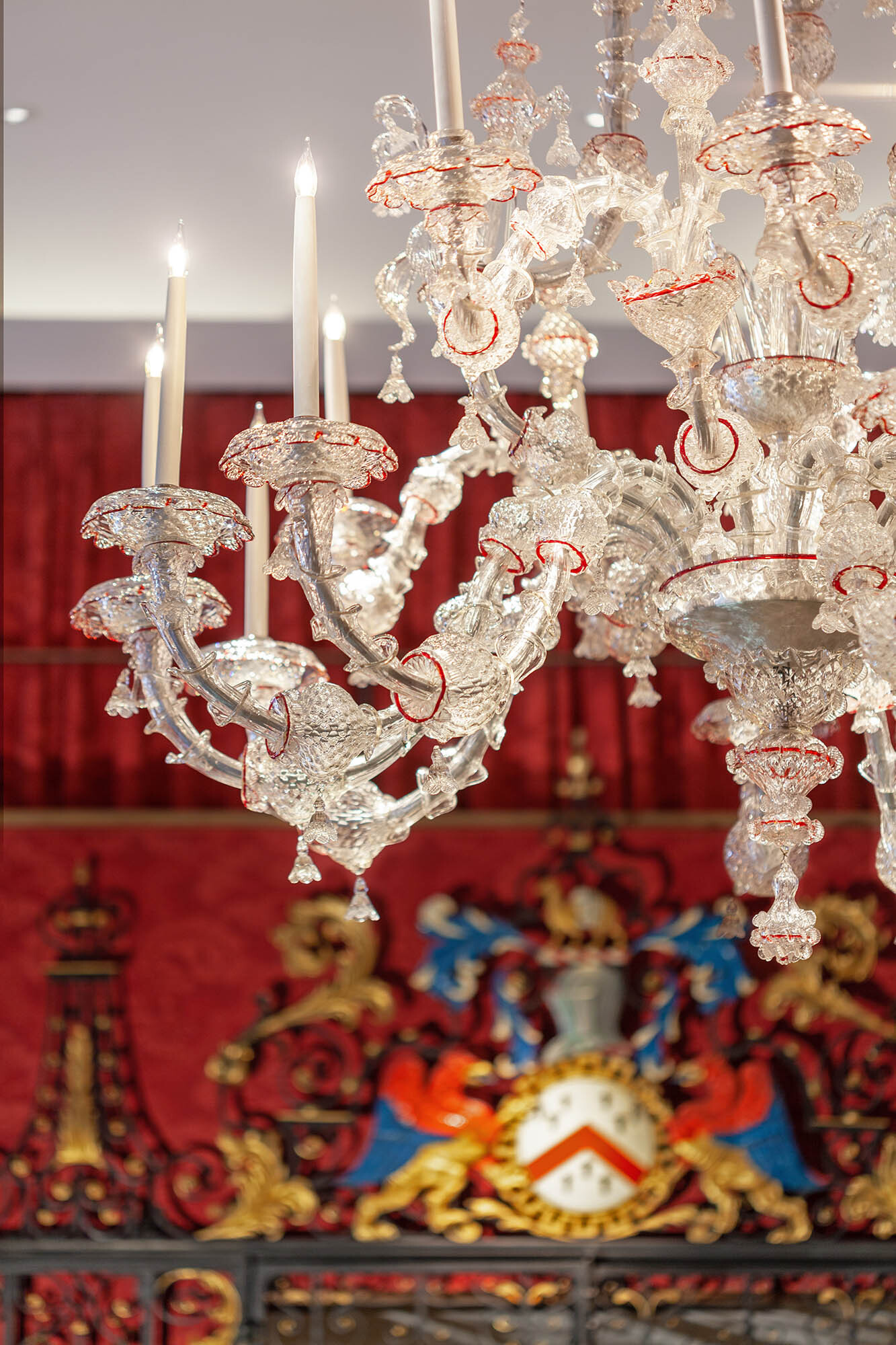As we mark the 75th Anniversary of VE Day, Dr Helen Clifford, the Grocers' Historian, has taken a look at the impact World War II had on The Grocers' Company, its Hall and the wider City community. 'One of the first intimations of war clouds gathering at Grocers’ Hall came in July 1939 when the basement was turned into an air raid shelter. Two months later Britain declared war on Germany. On 24th August 1940 the first bomb dropped on the City, landing in St Giles’ Churchyard in the Barbican.
The Grocers' Company was to face many near misses. On the 9th September a bomb fell through the roof of the Bank of England, near the corner of Princes Street and Lothbury, which fortunately failed to explode.
In November disaster was averted at Grocers’ Hall thanks to the valet and the night watchman who swiftly extinguished ‘the incendiary bombs which had fallen on the Hall’. As the Halls of other Companies were destroyed so the Grocers Company was able offer its own, which remained miraculously intact even during the Blitz, to others. Even as battered Britain glimpsed victory on the horizon, following the successful D-Day landings in Normandy on 6th June 1944, a final vicious air assault began. From 13th June Hitler launched new ‘Vengeance’ or V-weapons against London, beginning an eighty day campaign. On 19th July 1944 the Hall was hit by a V1 flying bomb, known to Londoners as a ‘Doodlebug’ (see link below). The Master, Mr Alfred Woodhouse (1893-1953), reported that the Hall had been ‘hit that morning soon after 9 o’clock by a flying bomb which had demolished some the bedrooms, the Library, the Inner Drawing Room, the Beadle’s office and part of the Clerk’s office besides damaging the roof and nearly all the windows’. Fortunately no one was injured. Despite the devastation the scheduled Court Meeting proceeded as normal, thanks to accommodation and luncheon provided by the Chairman at Lloyds. Although the Minute Book was in the strong room and inaccessible, the usual consideration of ‘memorials on behalf of Public Charities’ took place. We are lucky to have surviving photographs, taken for the War Damage Commission, that record the devastating event.'





